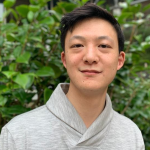
Funded in partnership with WWE in honor of Connor’s Cure
Brain tumors are the largest cause of cancer-related death in children. A subgroup of brain tumors known as DMG are the deadliest type, with most children dying within two years of their diagnosis. The location of these tumors makes surgery difficult and there is a need for effective therapies. One hallmark of DMGs is de-regulated (meaning too much or too little) epigenetics. DNA is a language in each of us that translates a set of instructions, determining features like our eye and hair color. Epigenetics provides the structure that allows cells to decode the DNA instructions for proper function. Patients with DMG have changes that result in faulty instructions that make cancer cells grow faster or migrate to other parts of the brain and body. A second emerging hallmark of DMGs is distorted metabolism, which is the chemical reactions in the body’s cells that change food into energy. We have made the discovery that brain tumor epigenetics is highly dependent and linked on certain nutrients. These nutrient sources help brain tumor cells to hijack epigenetic reactions to promote growth. By reducing the fuel that the cancer cells rely on, we aim to kill brain tumor cells while leaving normal cells unharmed. Why is this important? Pediatric brain tumor research has not generated sufficient advances and this proposal aims to help address that.

Parker Bridge Fellows Program; Funded in partnership between Parker Institute for Cancer Immunotherapy and the V Foundation
Cancer immunotherapy holds great promise to treat cancers since it boosts the human body’s own immune system to eradicate cancers. Cytotoxic T cells are the central arsenal in our immune system to find and attack cancer cells without harming the healthy cells. These T cells harbor a high diversity of T cell receptors (TCR) to specifically recognize tumor neoantigens, which are proteins arising from mutations in cancers but not in normal cells. Neoantigens are highly unique in each patient. Therefore, it is essential to identify tumor neoantigens and paired TCRs in each patient to develop personalized cancer immunotherapies such as tumor neoantigen vaccines and TCR-engineered T cell adoptive therapy. Here we will develop an innovative platform to map neoantigen specificity, TCR repertoire and molecular phenotype of T cells at the single-cell level. This platform will permit a rapid, low-cost, and high-throughput mapping of patient-specific neoantigens, allowing cancer immunotherapy more accessible to each patient. Linking TCR recognition of tumor neoantigens with molecular programming of tumor-targeting T cells, we will understand how the T cells “see” neoantigens impact their cell fate decision to become highly-protective T cells that eliminate cancers or exhausted T cells that cannot work. Completion of this work will significantly facilitate the development of patient-tailored cancer immunotherapy.

Funded by 2021 Kay Yow Cancer Fund Final Four Research Award
Black Americans (BA) with triple negative breast cancer (TNBC) have more aggressive disease and worse outcomes compared to Caucasian Americans. The goal of this project is to test if a novel immunotherapy will be effective in treating triple negative breast cancer in BA using preclinical models. We have generated two immunotherapy drugs that use a type of immune cells in the body called natural killer (NK) cells. NK cells normally function to kill cells and fight viral infections in our body. The drugs we have made train NK cells to recognize and find cancer cells that have two markers that are present on cancer cells from BA patients with TNBC. Once the NK cells find these cancer cells, they will eliminate them. We will test if these drugs kill cancer cells in models that are developed from BA patients with TNBC. The results of this proposal may show that NK-cell-based therapy could provide a new treatment option for BA TNBC patients and reduce their mortality from this disease.

Parker Bridge Fellows Program; Funded in partnership between Parker Institute for Cancer Immunotherapy and the V Foundation
Using the immune system to fight cancer is an exciting area of research that has led to cures for some cancers that could never be cured before. These “immune therapies” teach and enable cells in the immune system to recognize and fight cancers. Unfortunately, making effective immune therapies is difficult for deadly cancers of the brain. One challenge is that immune cells are not able to get into the brain as easily as other parts of the body. Another challenge is that the cells in the tumor can suppress the immune system, so that even when immune cells enter the brain, they cannot kill the tumor. We are interested in studying how cells interact inside of tumors to better understand why some immune cells are effective at killing tumors and others are not. My research uses a new kind of microscope imaging to see tumor cells and immune cells with more detail than ever possible before. This allows our lab to look at the structure of brain tumors to better understand how immune cells enter the brain and interact with other cells in the tumor. By understanding better how brain tumors and immune system influence each other, we hope to make more effective immune therapies to treat this deadly type of cancer.

Funded by the 2021 Victory Ride to Cure Cancer
Lineberger Comprehensive Cancer Center (LCCC) is committed to making cancer care accessible to the people of North Carolina. This includes opportunities to participate in clinical trials, which are important to improving cancer treatments. Few patients participate in clinical trials, and fewer still are patients who identify as Black, Indigenous, or a person of color (BIPOC). Many BIPOC patients are hesitant to participate in clinical trials. Enhancing diversity in our workforce will help BIPOC patients feel more comfortable enrolling in trials. This grant will provide opportunities for local BIPOC college students to learn about cancer care and research. The goal is to create interest in pursuing a career in this field at LCCC, and ultimately, ease hesitations that prevent BIPOC patients from participating in clinical trials. We will partner with NC Central University in creating a summer internship for 5 students. Students will be matched with mentors with experience in cancer research, clinical trials, and patient care. Students will also receive overall professional development such as resume and presentation development. To measure project success, we will encourage students to provide feedback during and after the program. A follow up survey will allow students to provide additional insights such as barriers to participation and measure their interest in a cancer related field. We will follow the students over time to understand the number that become employees at LCCC; we will also measure the number of BIPOC patients who enroll on clinical trials at LCCC.

Parker Bridge Fellows Program; Funded in partnership between Parker Institute for Cancer Immunotherapy and the V Foundation
Cancer remains the second leading cause of death in the US. In order to tackle cancers, a new kind of therapy has emerged, termed immunotherapy, which aims to boost the immune system’s ability to fight the cancer. However, a major fraction of patients do not respond to immunotherapies currently. If we can figure out what other roadblocks to the immune system exist in these patients, we could expand the benefits to survival and quality of life to more people.
The immune system is a complicated team, with different cell types doing different roles. In order to work together these cells must talk to each through cell signaling and have to be in the right formations to carry out a successful play against the tumor. We want to discover how this teamwork can break down and design therapies to patch those issues.
The tumor is made up of more than just immune cells of course, and our project will focus on two types of cells that talk to the immune system. One cell type is the fibroblast which makes the building materials that hold our tissues together. Another cell type is the endothelial cell which forms blood vessels which serve as the roads and highways that carry cells, nutrients, and drugs into the tumor. If we can understand how these cells break immune cell teamwork, we can reveal new weak spots to target, making immunotherapies even stronger.

Funded by the 2021 Victory Ride to Cure Cancer
Black patients are more likely to die from breast, prostate, lung, and colorectal cancers than White patients. There are many reasons for these differences, including barriers to accessing treatment. In recent years, scientists have created new and better treatments that match a cancer’s unique biology, changing the way that we treat the disease. The first step to getting these therapies is genomic testing, which looks closely at the cancer to understand what might be causing it. Black patients are less likely to get genomic testing and these new therapies than White patients. If we don’t improve access to genomic testing, Black patients will continue to experience barriers to life-saving treatments, causing even bigger differences in survival between Black and White patients. In this study, we will look at the factors that cause differences in genomic testing between Black and White patients. We will also interview Black patients and cancer doctors about their experiences and preferences related to genomic testing. We will use our results to create strategies to improve access to genomic testing for Black patients. In the future, we hope to use our strategies at Duke Cancer Institute and in community hospitals in the Duke Cancer Network to reach cancer patients who are mostly Black, rural, and low-income, a group with large barriers to genomic testing.

Funded by the V Foundation’s Virginia Vine event
Endometrial cancer (EC) is the most common cancer of the female reproductive tract in the US. There has been an increase in the amount of this cancer and more women are dying of this than in the past. Black women are twice as likely to die from EC than white women. There are many possible reasons for this, one of which might be that Black women have different stressors than white women and this can change the way the immune system works with chemotherapy to fight cancer. Our center is leading a one- of-a-kind research study dedicated to Black women with EC to better understand if a new immunotherapy treatment works as well in Black women as it does in white women. We hope to look for markers that can help us predict if someone will respond to the new treatment or not. These biomarkers can be used to help women decide if a treatment is right for them and are likely to be different between Black and white women. We plan to look at three types of biomarkers: allostatic load (a measure of the impact of stress on the body), microbiome (different bacteria make up in our bodies), and cytokines (markers of how our immune system is working). We hope to find out if any of these biomarkers can help us predict which patients will respond to therapy and help improve outcomes for Black women.

Funded by the V Foundation’s Virginia Vine event
Chimeric antigen receptor (CAR) T-cells are immune cells from patients that are engineered to target and kill cancers (not normal tissue). This is a new and exciting way to treat cancer. CARs have been wildly successful in treating children with leukemia that does not respond to any other therapy, saving many lives. I ran one of the first clinical trials to show this. Sadly, many patients experience severe or life-threatening side effects. The only drug that helps is currently on national shortage. This means some patients needing this lifesaving therapy may not get it. Even if that drug was available, CAR therapy still needs to be safer. We developed a chimeric inhibitory receptor (CIR) that we believe does just that. When it is combined with a CAR it dramatically decreases the production of the side effect causing proteins called cytokines. Importantly, it still kills tumors. Funding from this grant will allow us to make more versions of the CIR that can put the brakes on CARs in different ways. We will test the best ones in mice that have leukemia to confirm they still work. Results from these experiments will allow us to start a clinical trial of CIR-containing CAR T-cells for patients with leukemia or lymphoma here at the University of Virginia using our new CAR T-cell manufacturing facility. This unique approach to improving safety will have a dramatic impact on Virginians as well as all others with cancer who need life-saving CAR T-cell therapy.

Funded by Gastric Cancer Foundation
Gastric cancer develops in the setting of chronic inflammation that both promotes cancer progression and that also blocks the body’s immune response which otherwise might restrain tumor growth. Chronic inflammation comprises a number of different types of white blood cells, but one type, called “myeloid derived suppressor cells”, plays an important role in blocking T lymphocytes, the main immune cell that protects us against cancer. We have shown in several mouse models that “myeloid suppressors” expand in gastric cancer and mediate some of the resistance to the newest immune therapies (called immune checkpoint inhibitors such as anti-PD1 drugs). We are proposing to study the importance of these myeloid suppressor cells further using several different mouse models and also analysis of human gastric cancer tissues. We will be testing a novel peptide shown by our lab to inhibit the expansion of myeloid suppressors, and also a small molecule that we have shown can inhibit the production of these cells in the bone marrow. Overall, our goal is to advance new therapies to target inflammatory cells that resistance to immune therapies in cancer.













